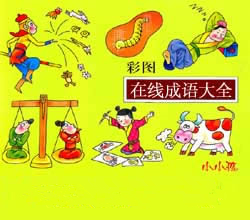Dragon Boat Festival_端午节英语作文200字
Dragon Boat Festival, often known as Tuen Ng Festival or Duan Wu Festival, is a traditional Chinese festival held on the fifth day of the fifth month of the Chinese calendar. It is also known as the Double Fifth. It has since been celebrated, in various ways, in other parts of East Asia as well, most notably Korea.
The exact origins of Duan Wu are unclear, but one traditional view holds that the festival memorializes the Chinese poet Qu Yuan of the Warring States Period. He committed suicide by drowning himself in a river because he was disgusted by the corruption of the Chu government. The local people, knowing him to be a good man, decided to throw food into the river to feed the fishes to prevent them from eating Qu's body. They also sat on dragon boats, and tried to scare the fishes away by the thundering sound of drums aboard the boat and the fierce looking dragon-head in the front of the boat.
In the early years of the Chinese Republic, Duan Wu was also celebrated as "Poets' Day", due to Qu Yuan's status as China's first poet of personal renown.
Today, people eat zongzi (the food originally intended to feed the fishes) and race dragon boats in memory of Qu's dramatic death.
端午节,通常被称为端午节或是端午祭,是中国日历上五月五号的一个传统节日,它也被称为五五。人们以多种方式庆祝端午节,甚至在东亚地区,最明显的是韩国。
端午的确切起源尚不明确,但有传统的观点认为,端午是为了纪念中国战国时期诗人屈原。他由于反对楚国国政腐败而投河自尽。当地的人,知道他是一个好人,于是将食物投放进河里喂鱼,以防止它们吃了屈原的尸体。他们坐在龙舟上,并试图用敲鼓的方式和船头具有龙头的船来吓跑鱼
在早期的中国,端午还被称作为“诗人节”,因为屈原是作为中国第一个个人声誉的诗人。
今天,人们用吃粽子(食物原本打算喂养鱼)和赛龙舟来纪念屈原的死。
相关作文: 春夏秋冬、春天来了一年级作文、遵守交通规则人人有责、我的新牙、快乐读书节、新年的愿望200字、厨艺大比拼、夏夜小曲、学泡茶、我有一片幸福的天空标签:英语
热门作文成语素材
- 匪夷所思 匪:不是;夷:平常。指言谈行动离奇古怪,不是一般人根据常情所能想象的。
- 分我杯羹 羹:肉汁。楚、汉相争时,刘邦答项羽的话。比喻从别人那里分享一分利益。
- 匪夷匪惠 夷:殷末周初的伯夷;惠:春秋时鲁国的柳下惠。既不是伯夷,又不是柳下惠;不具备这两位贤人的品德。形容才德不高而又驾驭的人。
- 奥援有灵 奥援:暗中支持的力量;有灵:有神通。多指旧时官场的钻营、勾结,暗通关节,很有神通。
- 巴三览四 比喻说话拉扯,没有中心。
- 安分知足 安于本分,对自己所得到的待遇知道满足。
- 飞沙走砾 沙:沙土;砾:小石块。沙土飞扬,小石块滚动。形容风势很猛。
- 诽誉在俗 诽:指诽谤;誉:赞扬;俗:风气、习惯。诽谤或赞扬在于当时的风习。后来引申指风气、习惯的作用非常大。
- 阪上走丸 阪:斜坡;丸:弹丸。象在斜坡上滚弹丸。比喻形势发展迅速或工作进行顺利。
- 笔大如椽 形容著名的文章。也指有名的作家。
- 分毫不爽 比喻没有丝毫差错。
- 挨肩擦背 形容人多拥挤。
- 飞黄腾达 飞黄:传说中神马名;腾达:上升,引伸为发迹,宦途得意。形容骏马奔腾飞驰。比喻骤然得志,官职升得很快。
- 补偏救弊 偏:偏差;弊:赞美。补救偏差漏洞,纠正缺点错误。
- 肥马轻裘 裘:皮衣。骑肥壮的马,穿轻暖的皮衣。形容阔绰。
